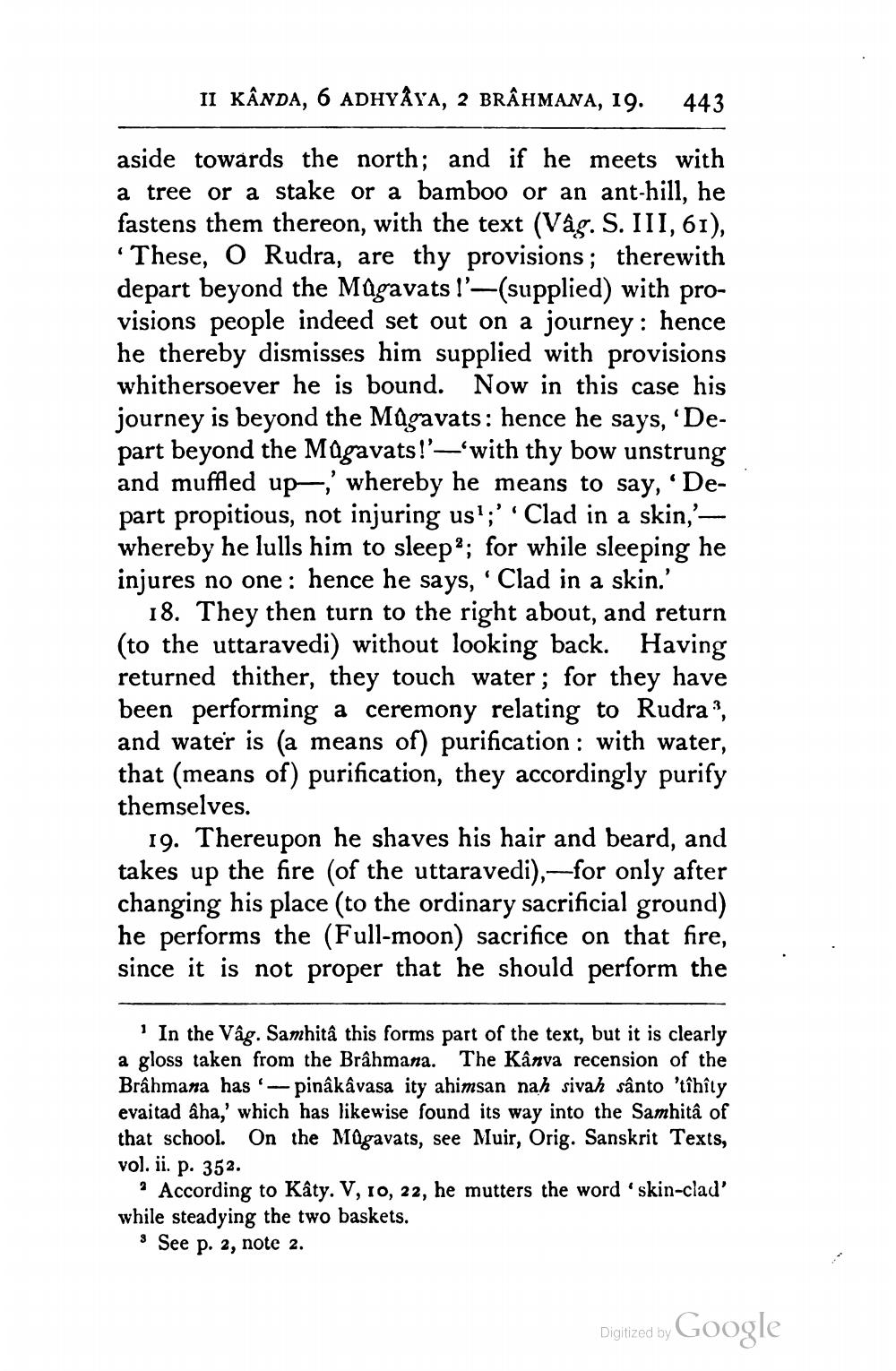________________
II KANDA, 6 ADHYAYA, 2 BRAHMANA, 19. 443
aside towards the north; and if he meets with a tree or a stake or a bamboo or an ant-hill, he fastens them thereon, with the text (Vâg. S. III, 61), 'These, O Rudra, are thy provisions; therewith depart beyond the Mugavats!'-(supplied) with provisions people indeed set out on a journey: hence he thereby dismisses him supplied with provisions whithersoever he is bound. Now in this case his journey is beyond the Mugavats: hence he says, 'Depart beyond the Mugavats!'-'with thy bow unstrung and muffled up,' whereby he means to say, 'Depart propitious, not injuring us1;' 'Clad in a skin,'— whereby he lulls him to sleep2; for while sleeping he injures no one: hence he says, ' Clad in a skin.'
18. They then turn to the right about, and return (to the uttaravedi) without looking back. Having returned thither, they touch water; for they have been performing a ceremony relating to Rudra3, and water is (a means of) purification: with water, that (means of) purification, they accordingly purify themselves.
19. Thereupon he shaves his hair and beard, and takes up the fire (of the uttaravedi),—for only after changing his place (to the ordinary sacrificial ground) he performs the (Full-moon) sacrifice on that fire, since it is not proper that he should perform the
In the Vâg. Samhitâ this forms part of the text, but it is clearly a gloss taken from the Brahmana. The Kânva recension of the Brahmana has '- pinâkâvasa ity ahimsan nah sivah sânto 'tîhîty evaitad âha,' which has likewise found its way into the Samhitâ of that school. On the Mûgavats, see Muir, Orig. Sanskrit Texts, vol. ii. P. 352.
2 According to Kâty. V, 10, 22, he mutters the word 'skin-clad' while steadying the two baskets.
See p. 2, note 2.
Digitized by Google




